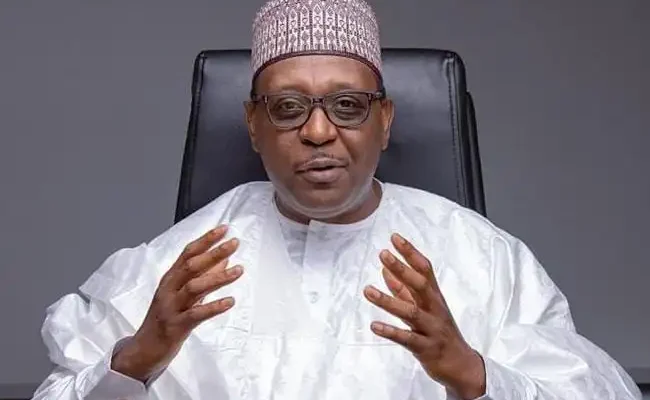
Prof. Muhammad Pate, the Coordinating Minister of Health and Social Welfare, says efforts are in place to introduce Electronic Blood Management System for effective and efficient blood service delivery nationwide.
He disclosed this at a press briefing in commemoration of the 2024 World Blood Donor Day with the theme “20 Years of Celebrating Giving: Thank You, Blood Donors!”, organised by the National Blood Service Commission (NBSC).

The minister, who was represented by Chris Isokpunwu, Director, Health Planning, Research and Statistics, said that the idea was to ensure availability of safe blood and blood products in Nigeria.
He said “we are in the process of scaling up activities of the commission to all parts of the country, and introducing an Electronic Blood Management System to ensure effective and efficient blood service delivery.”
He acknowledged the role of blood donors in saving lives, adding that “the donation rate in Nigeria shows that over 80 per cent of blood collected are from family replacement and commercial blood donors.
“Data on the donation rate in Nigeria shows that more than 80 per cent of blood collected are from families.
“Empirical evidence shows that the most reliable and safest source of blood comes from a stable base of regular, voluntary, unpaid blood donors, rather than from commercial sources.
“The World Health Assembly resolution WHA63.12 urges all member states to develop national blood systems based on voluntary unpaid donations and to work toward the goal of self-sufficiency.”
The minister said that the use of blood and blood products had become an integral part of modern medical practice as access to safe blood and blood products was critical to achieving an effective health system.
“With a population of over 200 million, Nigeria’s estimated blood need is about two million units per annum.
“Unfortunately, much less is currently donated, leading to avoidable deaths, morbidities, or ill health, particularly among our womenfolk, newborns, and victims of road traffic accidents and insurgency.
“This situation can improve if only one per cent of our country’s adult population commits itself to voluntary non-remunerated blood donation regularly,” he said.
Also, Prof. Saleh Yuguda, the Director-General, NBSC, said “blood donation plays a critical role in saving lives and strengthening the healthcare system in the country.”
According to Yuguda, transfusion of blood and blood products help patients to live longer and with higher quality of life.
“Additionally, blood transfusion supports complex medical and surgical procedures, thus, making it indispensable in maternal and childcare, as well as during man-made and natural disasters.
“Recent data indicates that more people are dying from lack of access to blood and blood products than communicable diseases in developing countries,” he said.
Dr Walter Mulombo, the Country Representative, World Health Organisation (WHO), said Nigeria is one of the 16 African countries with 80 per cent of blood donation from voluntary blood donation.
Mulombo, who was represented by Dr Hamzat Tayo, however, stressed the need to create awareness on blood donation as the total number of blood collected was still low at 5.2 units per one thousand population.
Mohammed Ibrahim, the Chief Route Commander, Federal Road Safety Corps (FRSC), emphasised the need for more voluntary non-remunerated blood donors.
According to Ibrahim, the goal is to save lives and to see that injury and death are reduced by five per cent.
The News Agency of Nigeria (NAN) reports that other highlights of the commemoration include conferment of awards to notable blood donors and engagement and advocacy with the media, community and religious leaders. (NAN)
READ ALSO FROM NIGERIAN TRIBUNE







